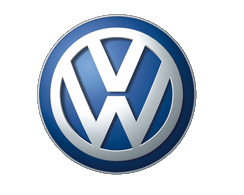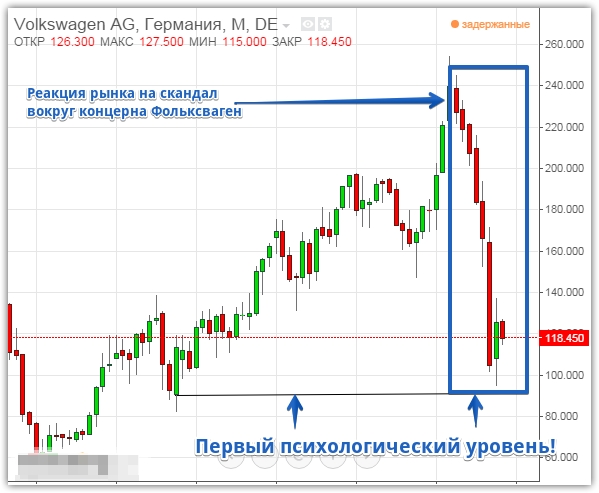Should you buy Volkswagen shares?
Volkswagen shares have become something of a haven for investors in recent years. The constant annual growth rate, relatively good dividends, which reached $2.5 per share, made investments in this asset so attractive that few large funds could refuse to keep a certain amount of the asset in their investment portfolio.
The constant annual growth rate, relatively good dividends, which reached $2.5 per share, made investments in this asset so attractive that few large funds could refuse to keep a certain amount of the asset in their investment portfolio.
The German automobile concern has firmly established itself in the international automobile market thanks to the quality of its product and the relatively reasonable price of cars of this class that various Japanese and American brands did not provide much competition.
Unfortunately, such an idyll for investors did not last very long, and the recent fall and depreciation of shares by 50 percent was simply shock therapy.
You probably have a question, why did this happen? If you haven't been following the news feed, I suggest you refresh your memory.
The reason for the fall in shares was a banal violation of the law, or, to be more precise, a big and large worldwide deception. Volkswagen actively pushed its cars into the US market, arguing that thanks to the diesel engine, car owners would pay less for fuel, and the car would not lose maneuverability, and in terms of environmental impact, air pollution would be no more than from conventional gasoline engines.
Such active promotion of the car brand and the declared characteristics of the power unit simply could not provide such low emissions into the atmosphere. Therefore, American environmentalists decided to test the two most famous brands for pollution, namely Passat and Jeta.
As it turned out, engineers installed special software, thanks to which, if the car is stationary, the filter is turned on and the readings are within the limits of the norm, but when driving, the emission of harmful substances exceeds the standard by 40 times.
This revelation led to the US authorities filing a lawsuit against the concern and demanding a payment of $18 billion, despite the fact that Volkswagen's annual average profit is 9.5 billion. The mere thought that the concern would have to work without profit for 2 years caused the shares on the stock market to fall twice as much.
Should you buy Volkswagen shares?
The strong fall in shares has made them affordable in the first place, and if recently the cost of one share was $240, then today its cost is $118. It is also worth adding that a kind of psychological level has formed on the chart, from which the price has already pushed off once and slowed down its movement:

Despite the strong decline in the share price, investing in Volkswagen remains a relatively profitable activity. Let’s assume that a US court decision will force you to pay a fine of 18 billion and the share price will drop a little more. However, we must not forget that market participants with such a stock collapse have already psychologically assumed that Volkswagen will pay the fine.
Further, many are afraid that the concern will collapse, but for such a large company, 18 billion is 2 years of work, and we should not forget that any respectable company has a safety net, and penalties will be restructured over time, so the company will not have to pay such a huge amount in one payment. Therefore, the fear that the concern will close after all the trials should be cast aside immediately.
It is also necessary not to forget that Volkswagen pays a very large sum to the German budget, so the fine can be mitigated, and the scandal itself can subside thanks to political support. Moreover, one should not discount the fact that Volkswagen uses the best lawyers from all over the world, thanks to whom penalties can be much less. Therefore, we can say unequivocally that this is an excellent time to buy shares, despite all the further risks.
What if the fall continues?
Of course, the trial in the United States is only the first step in the scandal, since if the United States wins, a chain of lawsuits may follow from European countries, and after the scandal, even South Korea started talking about checking cars. Therefore, if such a protracted process begins, it is necessary to hedge risks .
You can do this by selling a derivative asset CFD on Volkswagen shares in the same volume as when buying shares. This way, you will limit your risks and, in the event of a further fall, you will only earn from dividends. However, do not forget that when trading CFDs you need to choose a reliable broker with a minimum commission.
